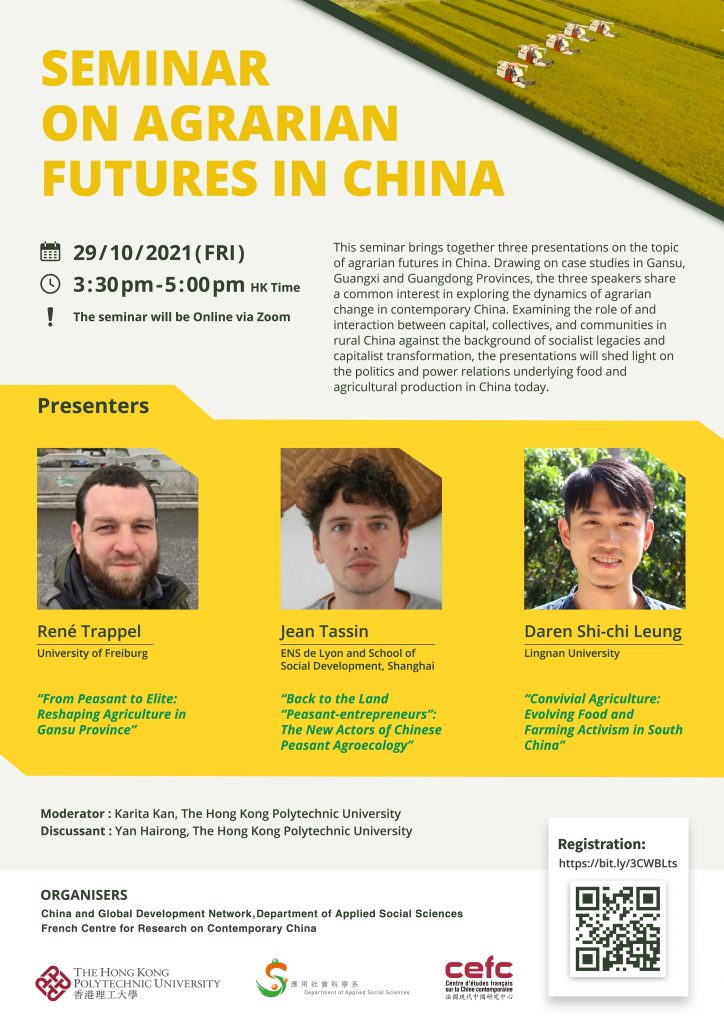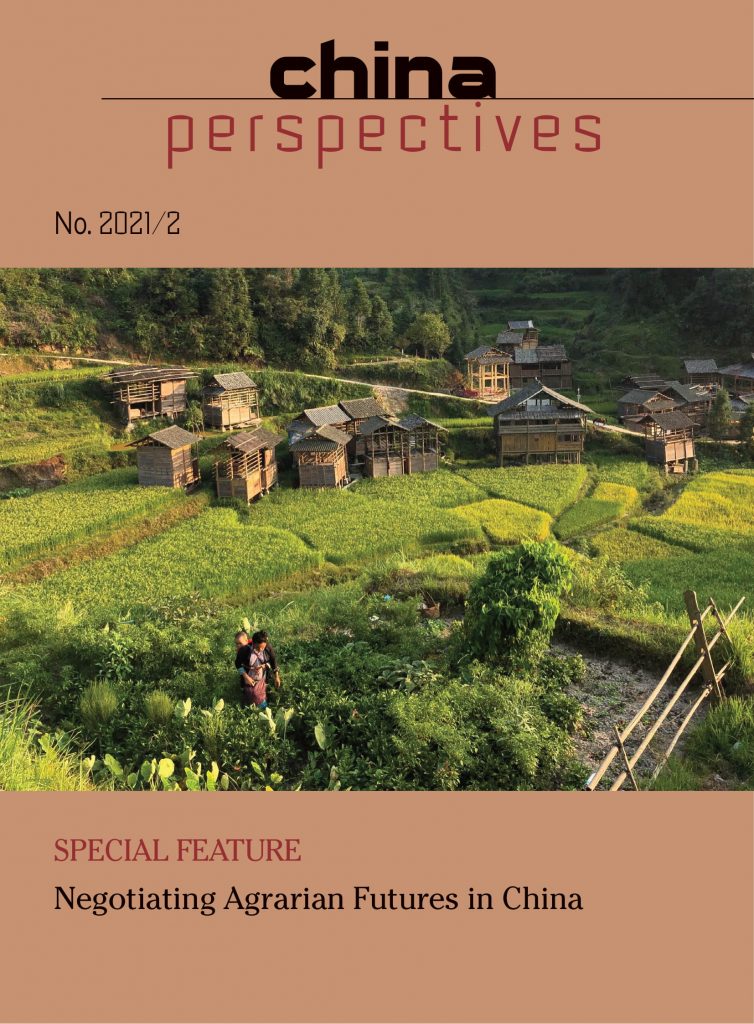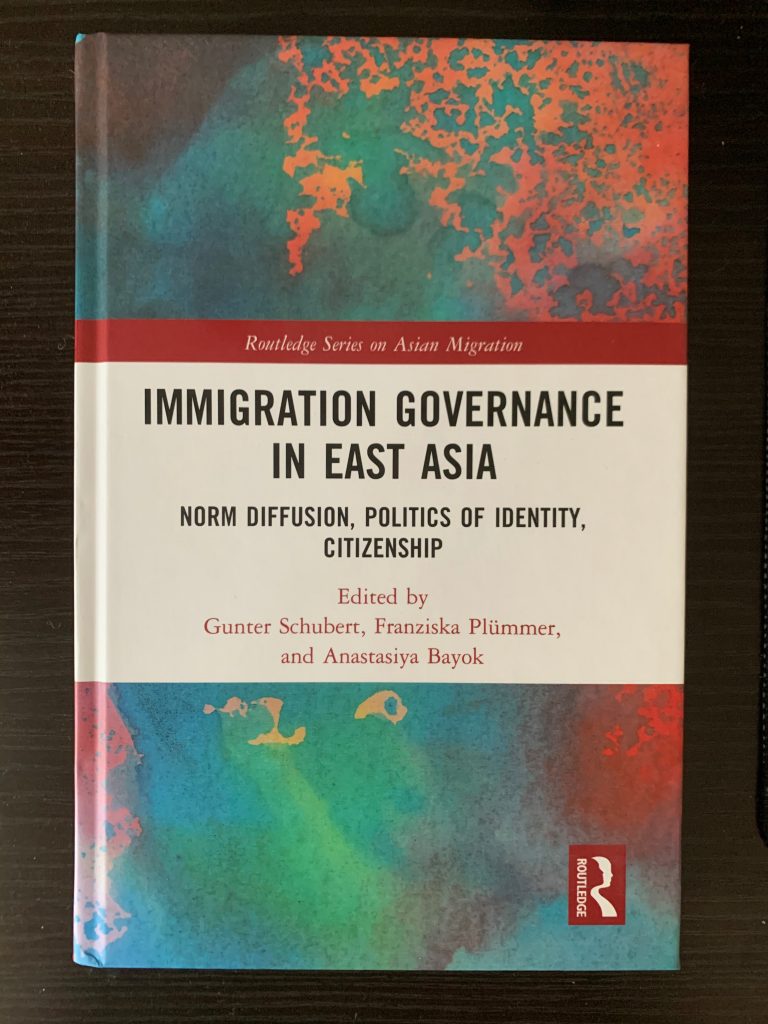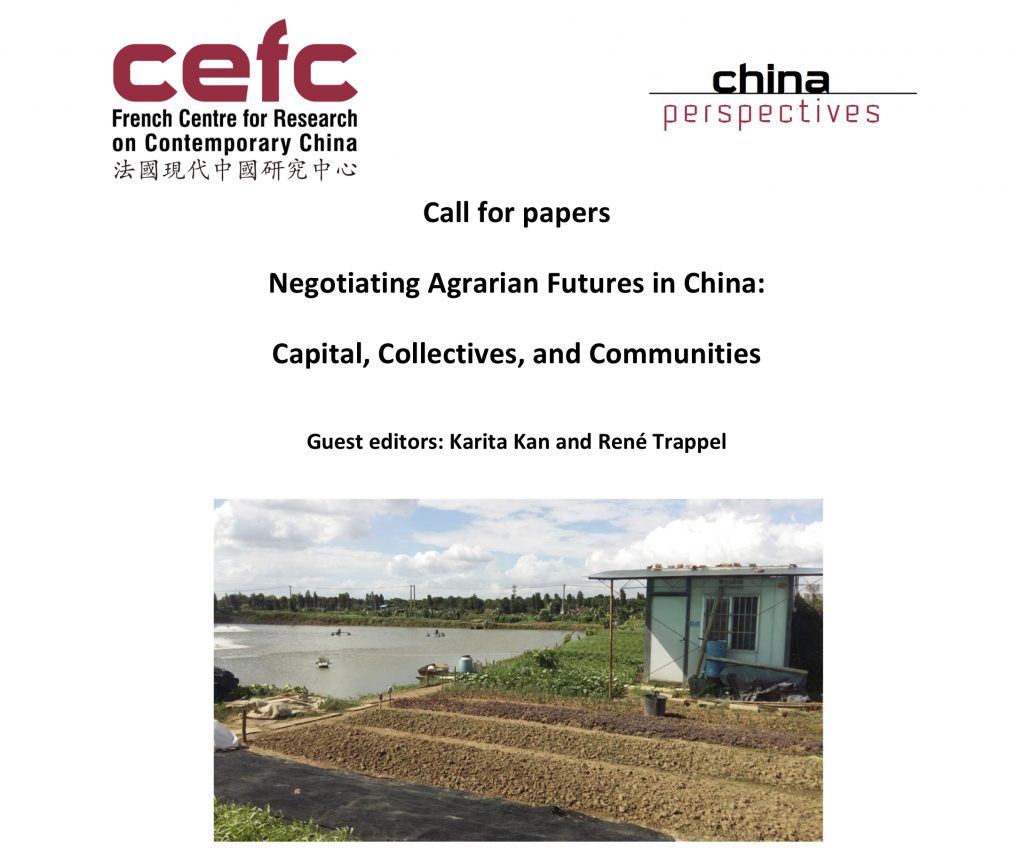A new special issue, co-edited by Elena Meyer-Clement and Jesper Willaing Zeuthen, with contributions from the first workshop of the “Modernizing Rural China” network has been published in China Information, Vol. 34, No. 2, 2020.
Meyer-Clement, E., & Zeuthen, J. W. (2020). China’s rural urbanization and the state: Putting the countryside first? China Information. https://doi.org/10.1177/0920203X20923240
Yep, R. (2019). Local alliances in rural urbanization: Land transfer in contemporary China. China Information. https://doi.org/10.1177/0920203X19865978
Meyer-Clement, E. (2019). Rural urbanization under Xi Jinping: From rapid community building to steady urbanization? China Information. https://doi.org/10.1177/0920203X19875931
Zeuthen, J. W. (2020). Rescaling China’s rural–urban frontier: Exception as norm in the access to development. China Information. https://doi.org/10.1177/0920203X20920817
Wilczak, J. (2020). Leveraging land values for rural development in China after the Sichuan earthquake. China Information. https://doi.org/10.1177/0920203X20928903
Wang, D., & Christiansen, F. (2019). The pursuit of new citizenship by peri-urban residents in China: Status, rights, and individual choice. China Information. https://doi.org/10.1177/0920203X19835455
Pils, E. (2020). From authoritarian development to totalist urban reordering: The Daxing forced evictions case. China Information, 34(2), 270–290. https://doi.org/10.1177/0920203X20929590




